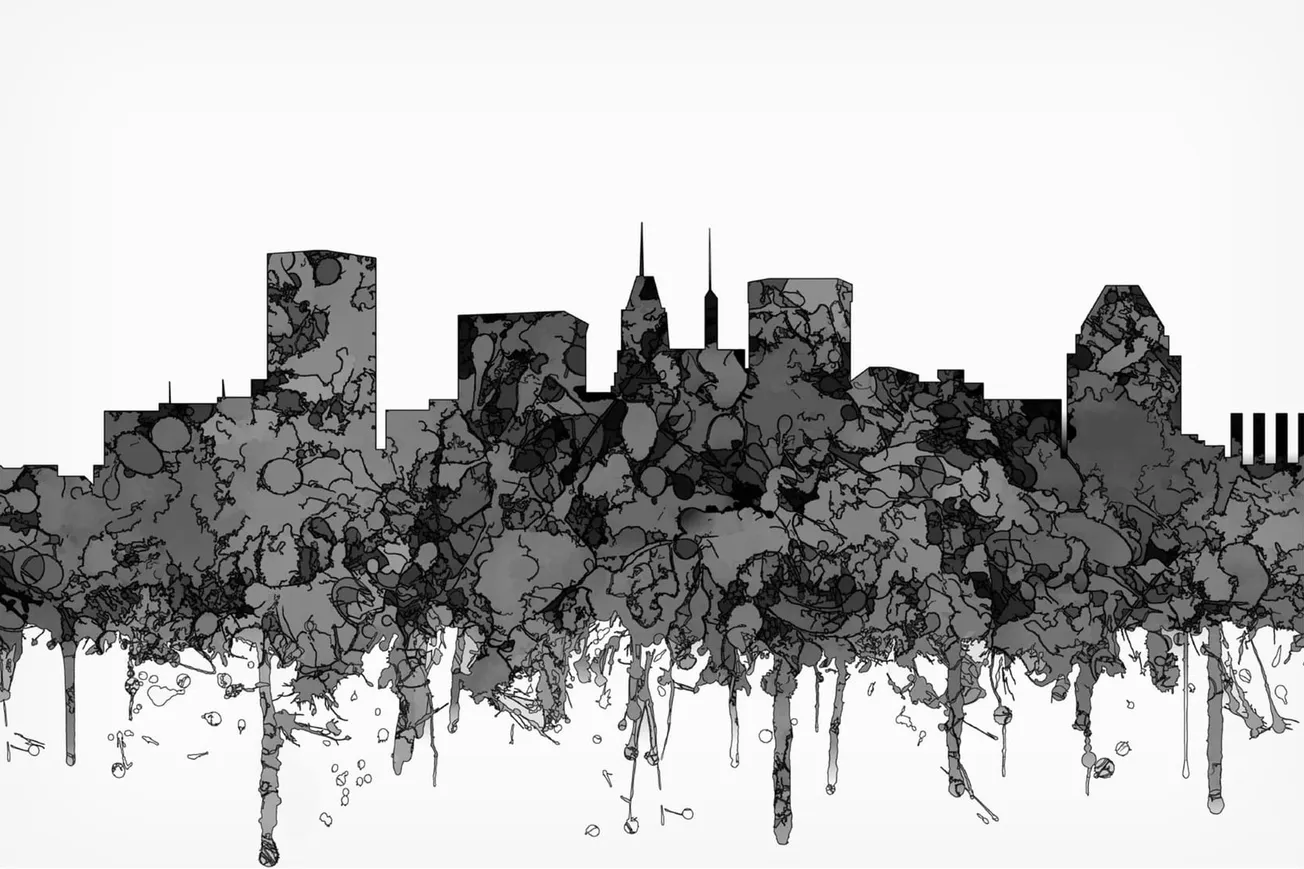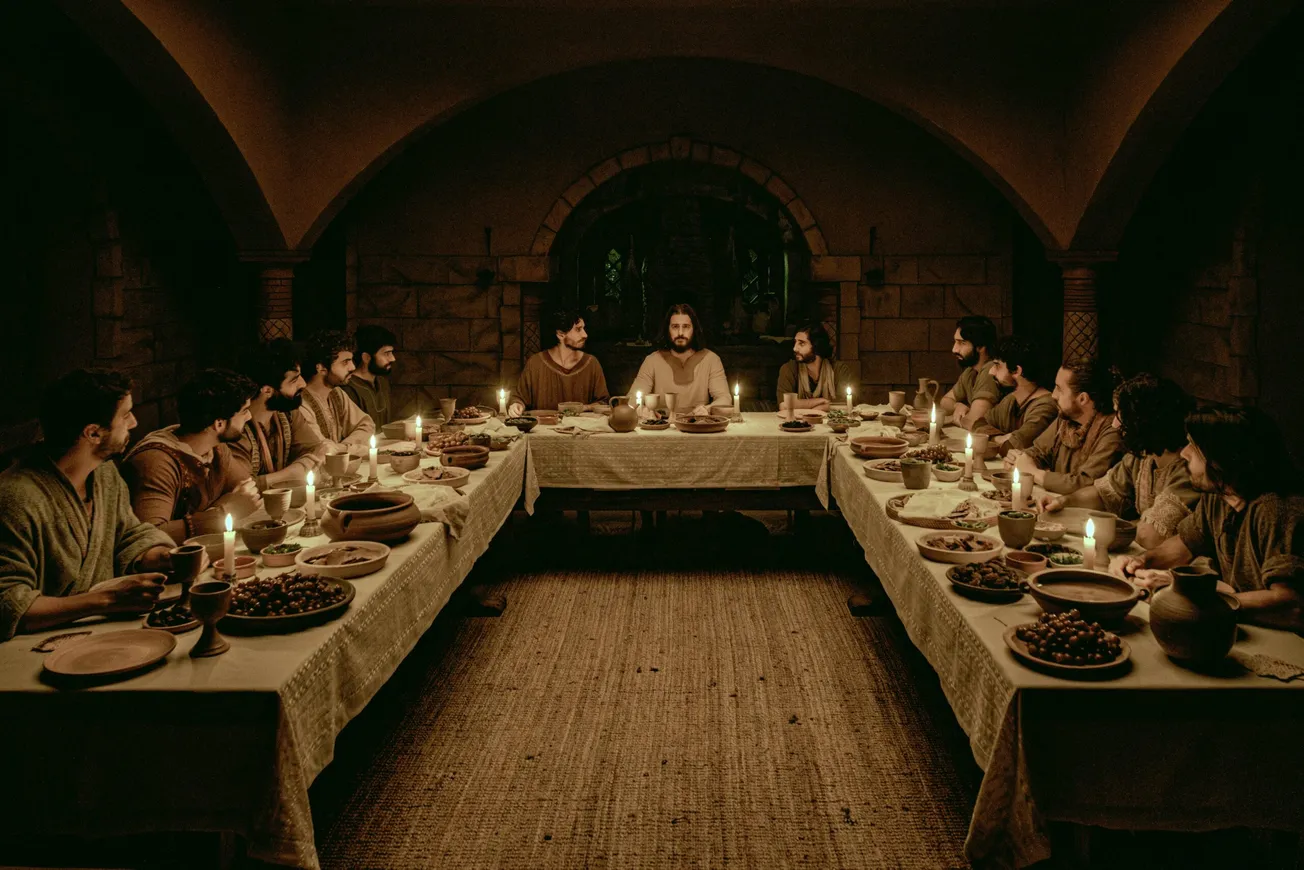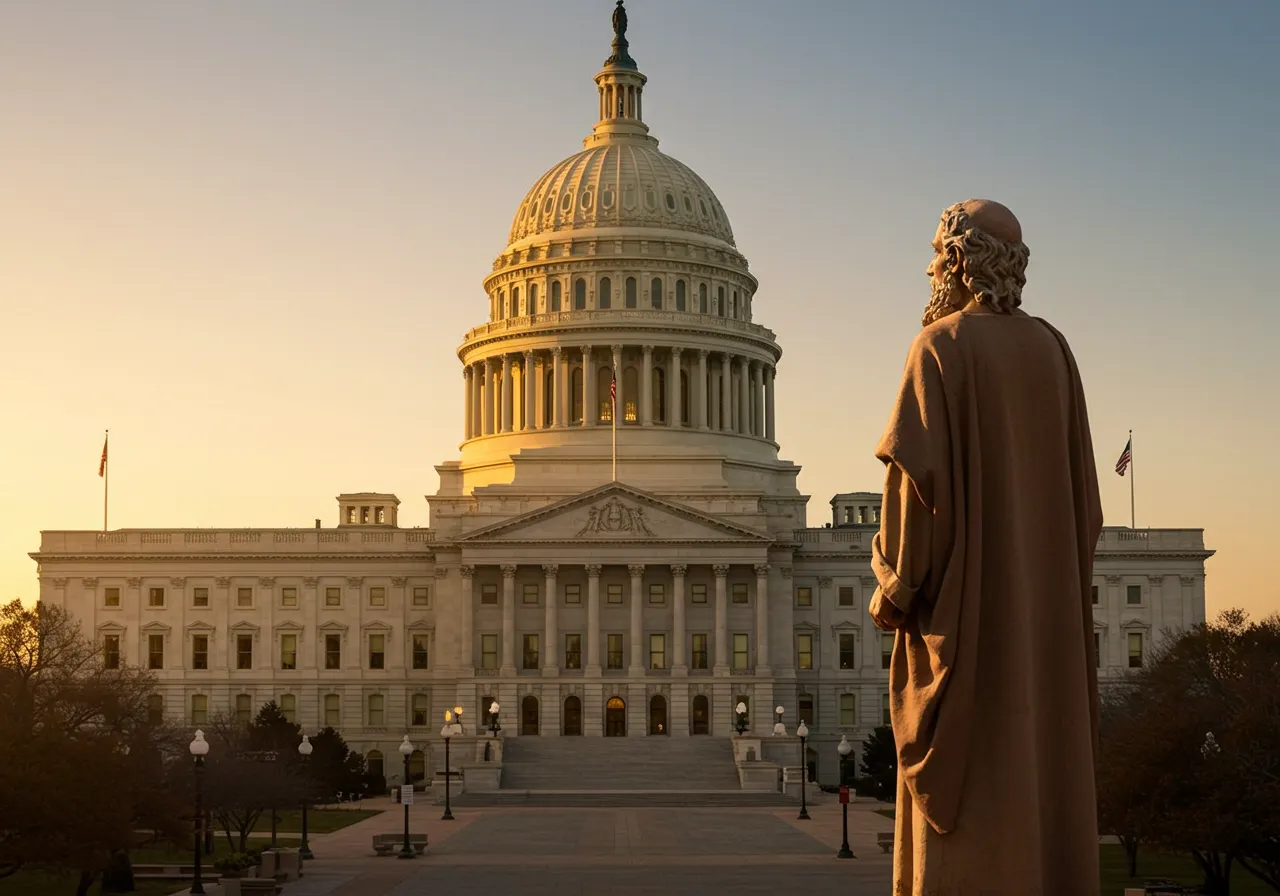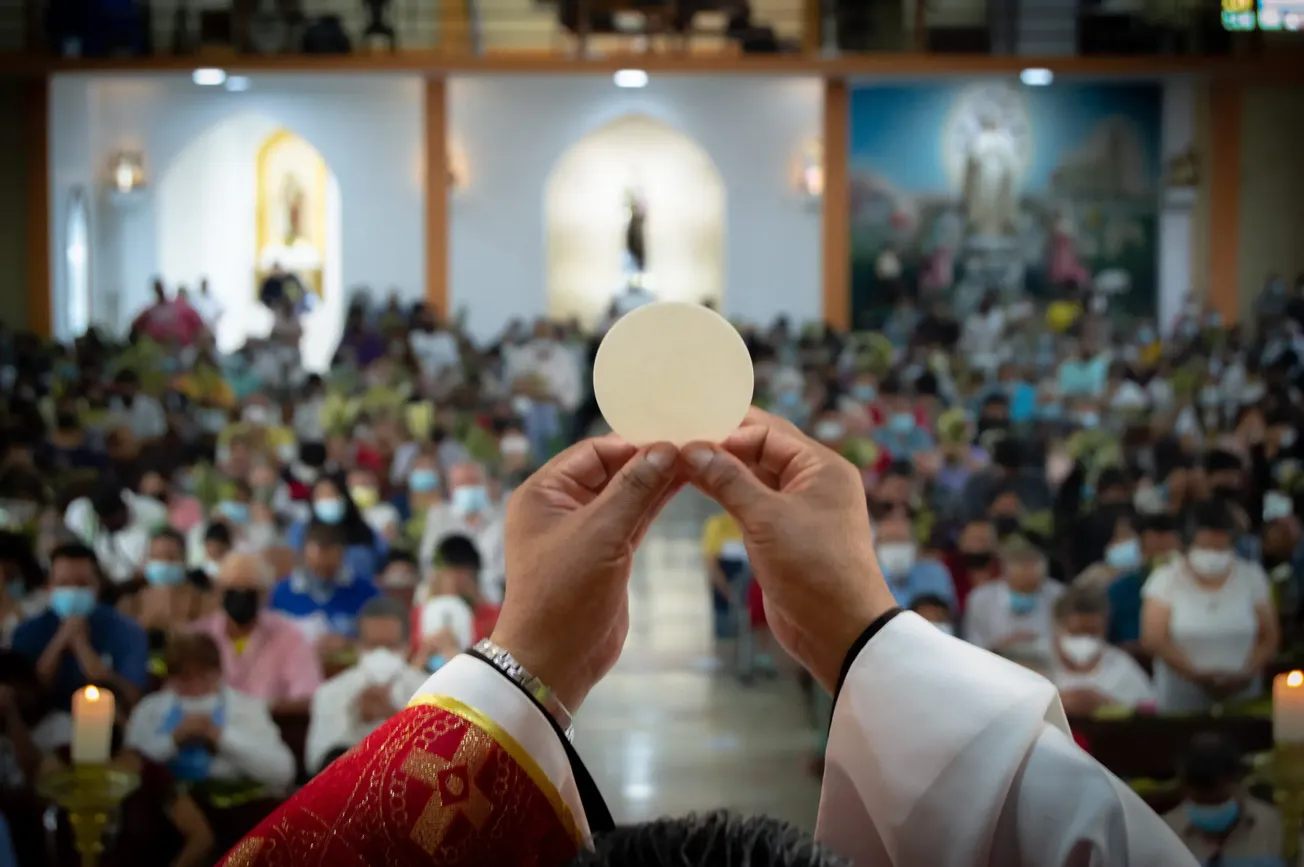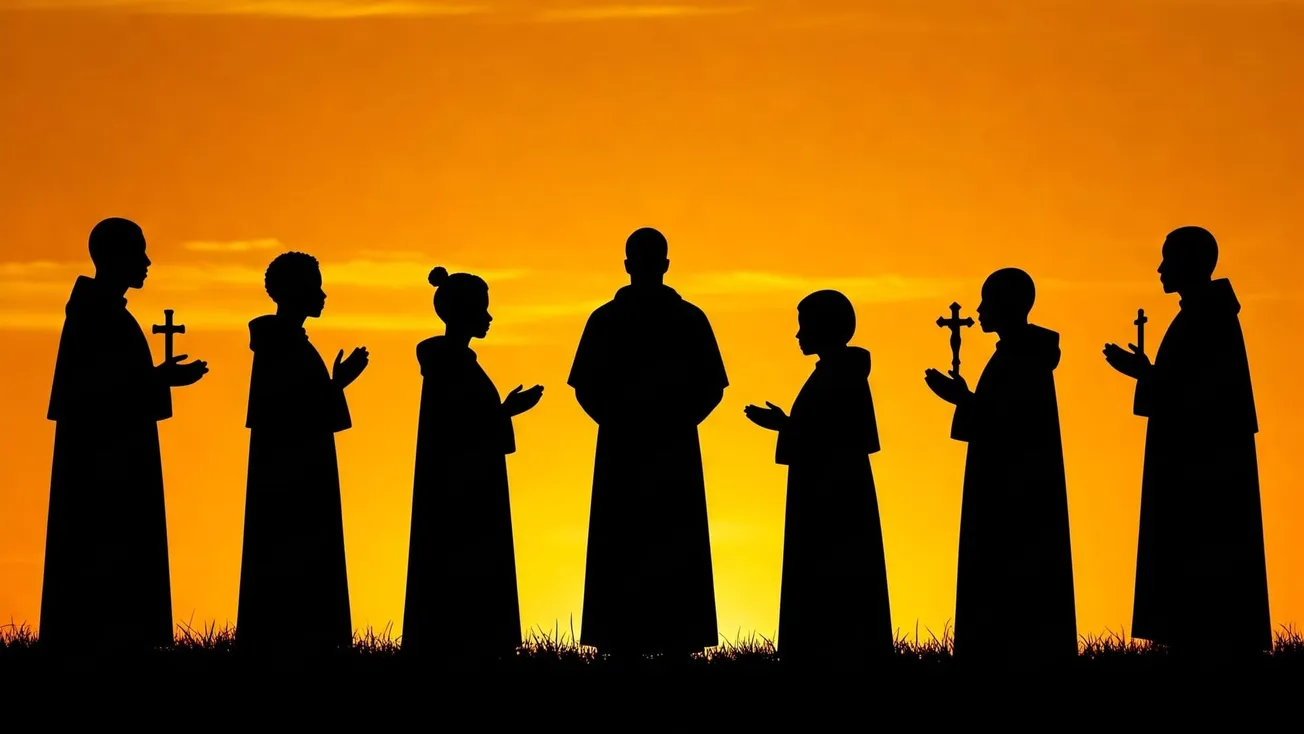If we must die, let it not be like hogs
Hunted and penned in an inglorious spot,
While round us bark the mad and hungry dogs,
Making their mock at our accursèd lot.
If we must die, O let us nobly die,
So that our precious blood may not be shed
In vain; then even the monsters we defy
Shall be constrained to honor us though dead!
O kinsmen! we must meet the common foe!
Though far outnumbered let us show us brave,
And for their thousand blows deal one death-blow!
What though before us lies the open grave?
Like men we’ll face the murderous, cowardly pack,
Pressed to the wall, dying, but fighting back!
—Claude McKay
The Archdiocese of Baltimore recently evicted the membership of 11 of Baltimore’s Black Catholic parishes from their church homes. For the record, White and Hispanic church members were evicted too. Even so, the Church, particularly in Baltimore, owes Black Catholics for keeping the faith in the face of White prejudice and discrimination.
After years of public, hurtful, and unlawful humiliation and their self-confessed, sinful mistreatment of Black Catholics, the Archdiocese of Baltimore is doing what it has always done for years: shamelessly closed Black churches and schools. “Seek the City to Come” is the process recently conducted by the urban vicar, Bishop Bruce Lewandowski, CSsR and approved by Archbishop William Lori. It is a disaster—a profane, unholy, ungodly failure.
In a nutshell, “Seek the City” more than likely will sink the city churches, especially the Black ones. We are disheartened, disappointed and just plain angry about how Church leaders have routinely treated us, and this episode is no different. Some among us have lived through two or three church closures in their faith careers and yet we have stayed with the faith through it all, including the days of segregation.
In the not-too-distant past, we were ignored by church ushers (except to collect our envelopes for church offerings). We were regularly blocked by ushers from polluting, with Black hands, holy water fonts Whites deemed for themselves only. Black Catholics “obediently” waited in the center aisle until all the Whites, who also wanted to receive Communion, were served first. They used a blessed sacrament to impose the sin of hateful and discriminatory White Supremacy.
They allowed only White-skinned images inside Catholic churches, parallel to the Confederate monuments erected about the country during Jim Crow. There were separate holy water fonts in churches, just like the drinking fountains in public facilities. Consequently, there was no separation of Church and state as it pertained to how Black Catholics were treated in Baltimore and everywhere else in the United States.
That is how Black Catholics have been treated historically by the Charm City chancery, yet they don’t apologize or atone for their sins of racism. Instead, they treat us in “Seek the City to Come” as though it were color-blind. They say they treated all of the churches equally. They should have treated Black churches equitably.
The Catholic Church owes Black Catholics. Therefore, no Black churches should be closed in this archdiocese.

Six Black churches will be kept open in Baltimore; six churches will be merged into them. Six congregations are expected to leave their church home and those being kept open will apparently lose their pastor, who will be transferred.
It is more like Sink the City to Come. It is creating chaos among churchgoing folks in Baltimore. All the church evictions are miscalculations and misfires; some would say downright misdeeds. If the archbishop does not rescind them, prayerfully the pope can be convinced to do so.
Black Catholics stayed in Baltimore City churches while others left. Whites did not want their kids to go to school with Black children. So, when the U.S. Supreme Court issued Brown v. Board in 1954 and ruled that racial segregation was illegal, White Catholics left city churches for their new hiding place: new homes and churches in the surrounding counties. Black Catholics stayed in the city and paid for maintenance and management of the sacred spaces with offerings in collection envelopes and sweat equity.
Racial hatred among some, mingled with prejudice and discrimination, is an integral part of the DNA of the Catholic Church in Baltimore. White Supremacist attitudes and behaviors have festered, spanning slavery to church closings, with widespread racial segregation and sinful silence during mass lynchings in between. There was rarely mention of racism during sermons then or now.
For example, it was an open secret for years among Black and White Catholics that the archdiocese “did not ordain Negroes.” That is why the first Black Catholic priest in Baltimore was not ordained until 1974—88 years after Venerable Augustus Tolton became the first openly Black Catholic priest in the United States.
Fr Paul Bernard Smith was ordained in 1964 by the Diocese of Alexandria in Louisiana after graduating from seminary there. He grew up as a member of St. Pius V Church in West Baltimore. He had to shop around for a willing diocese in order to enter seminary.
Archbishop Lawrence J. Shehan of Baltimore reportedly flew south to participate in Smith’s ordination. Shehan supposedly said to the newly made priest, “I regret with all my heart that you were not ordained in Baltimore. Would you like me to excardinate you from here in Louisiana so I can incardinate you in the Baltimore Archdiocese?” Smith said, “No.” He felt the need to be loyal to the diocese that was kind enough to ordain him.
The oldest diocese in the nation lost the opportunity to ordain its first Black priest in 1964 and waited another ten years before integrating the local priesthood. It was then that Fr Donald Sterling was ordained at St. Ann Church in Baltimore by Cardinal Shehan.
That sad but not singular episode of Catholic history was ignored by the officials who foisted the “Seek the City” eviction process on Baltimore’s Black parishes, including St. Pius V and St. Ann. Some of us tried to tell them. Their listening skills were minimal.
The question is now this: How should Black churchgoers respond? Is praying that the authorities will change their minds a realistic answer? Or will folks simply refuse to leave their church home? Will Black churchgoers rebel, “pressed to the wall, dying, but fighting back”? Or will Black Catholic congregations demand to be kept open as reparations for segregation practiced in U.S. (including Baltimore) Catholicism? If not now, when? If not us, who?
I say: Let us press our backs to church walls and honor the spirit of Claude McKay.
Ralph E. Moore Jr. is a lifelong Black Catholic, educated by the Oblate Sisters of Providence and the Jesuits. He has served on various committees on race, racism, and poverty for the Archdiocese of Baltimore. He is a married man with two children and four grandchildren. He is a member of the St. Ann Social Justice Committee. He can be reached at vpcs@yahoo.com.


